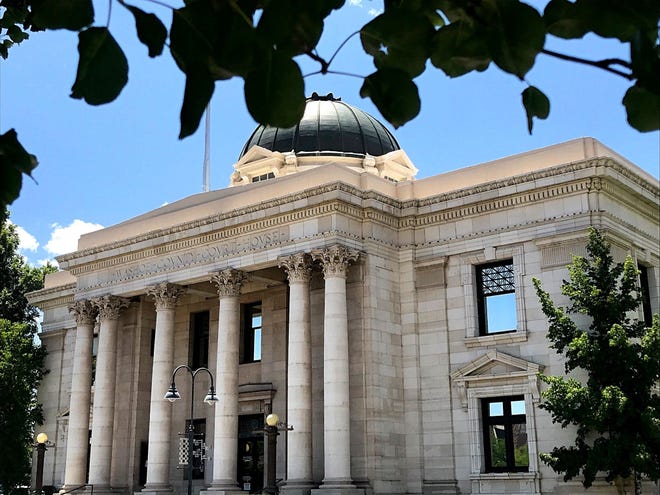Presiding Judge Egan Walker will hold the first in-person graduation for the Veterans Treatment Court since the court began conducting hearings remotely due to the COVID-19 pandemic in March of 2020.
Created in 2009, the Veterans Treatment Court aims to help veterans of the Armed Forces and National Guard and active-duty military members who suffer from problems related to military service or readjustment to civilian life. The Veterans Treatment Court targets non-violent, justice-involved veterans suffering from mental illness, alcohol or substance use, post-traumatic stress disorder or military sexual trauma. Participants must be referred to this Court.
The Veterans Court values a holistic approach to help the participants pursue and stop the cycle of substance use, and criminal behavior. The Court partners with local providers specializing in certain areas of expertise, such as substance use counseling, case management, drug testing, and referrals to vocational, academic, and housing programs. Additionally, the Veterans Administration may provide housing, case management, and psychiatrist and medication services for certain participants.
A very special graduation ceremony will include Veterans Treatment Court participant Mr. Jack Scheffler.
When: Monday, Dec. 19 , 10:30 a.m. (Please arrive at 10:15 a.m.)
Where: Second Judicial District Court, Department 7, 75 Court Street, Reno
Contact: Brooke Howard 775-328-3839
The mission of the Second Judicial District Court’s Specialty Courts is to improve quality of life, reduce recidivism, and increase community safety and awareness by engaging the drug and alcohol abusing offender or the offender with a mental health illness in an intensive, court supervised, treatment program. This is accomplished through the efforts of a multidisciplinary team, which includes a judge, defense and prosecution counsel, court officers, treatment providers, parole and probation officers, and drug testing staff.
The SJDC has eight specialty court programs including Adult Drug Court, Family Treatment Court, Felony DUI Court, Medication-Assisted Treatment Court, Mental Health Court, Prison Re-Entry Court, Veterans Court, and Youth Offender Diversion Court, serving more than 700 participants each year.
Specialty Courts save considerable money for taxpayers. Specialty Court programs result in significant cost savings to the State of Nevada and Washoe County by reducing public costs associated with monitoring, detaining, and prosecuting criminal activity by state and county law enforcement and prosecution agencies. The National Association of Drug Court Professionals (NADCP) reports for every $1.00 invested in Specialty Courts, taxpayer save as much as $3.36 in avoided criminal justice costs alone. When considering other costs associated with participant’s involvement in the criminal justice system, it is estimated that Specialty Courts save taxpayers $27.00 for every $1.00 invested by reducing victimization and healthcare services utilization.
NADCP findings indicate that Specialty Courts reduce crime by 45% more than other sentencing options. Participants in Specialty Courts programs are six times more likely to complete substance abuse treatment than those not involved in a judicial program. Without judicial oversight, 70% of substance-abusing offenders drop out of treatment.
Nevada’s Administrative Office of the Courts (AOC) awards grants to pay for mandated drug and alcohol testing, as well as counseling, electronic monitoring, incentives, and other costs of a Specialty Court program. In addition to state funds, other sources of revenue include federal funding from the Substance Abuse and Mental Health Services Administration (SAMSHA) which provides funding to establish and enhance specialty court services.

